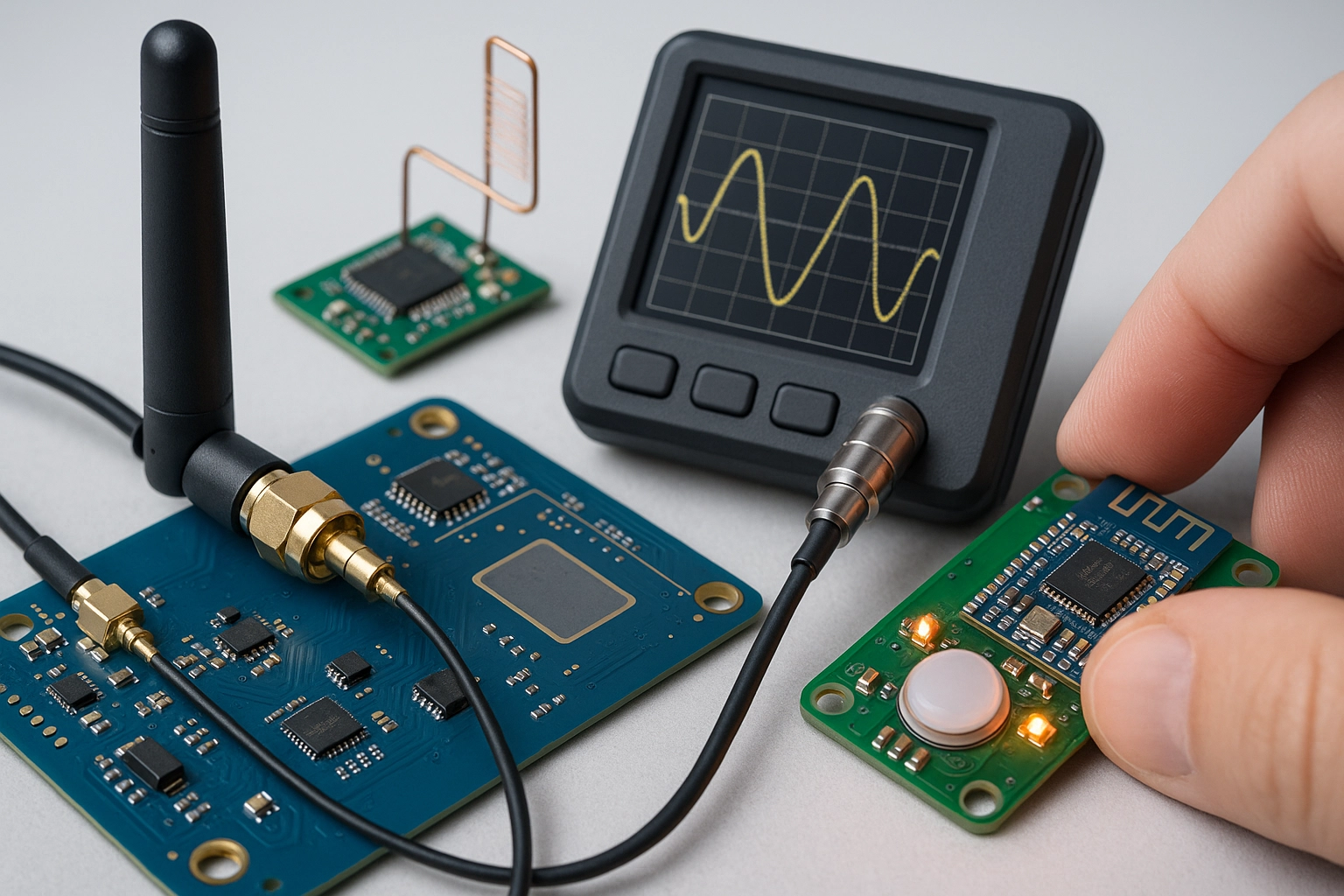IEEE 802 15 4 Automotive ZigBee Connectivity Testing
The IEEE 802.15.4 standard is widely recognized for its role in providing a reliable, low-cost solution for short-range communications, particularly in the automotive sector. The automotive industry increasingly relies on this technology to enable advanced connectivity features such as vehicle-to-vehicle (V2V) communication, infotainment systems, and telematics services. The IEEE 802.15.4 Automotive ZigBee Connectivity Testing ensures that devices comply with the standards set by this protocol, thereby guaranteeing interoperability and reliability across a wide range of automotive applications.
The testing process involves several critical steps to ensure that all aspects of the communication between devices are functioning as intended. This includes verifying signal strength, data transmission rates, latency, and error rates. The tests also cover the robustness of the network under various environmental conditions, such as temperature extremes, electromagnetic interference (EMI), and physical obstructions. These rigorous checks are essential to maintain the high standards required for automotive systems, which must operate reliably in challenging environments.
The test setup typically involves a variety of instruments and software tools designed to simulate real-world scenarios that devices might encounter. For instance, environmental chambers can replicate temperature variations, while EMI generators can assess how well devices withstand interference from other electronic equipment. Signal strength meters measure the quality of the wireless signals, ensuring they meet the required thresholds for reliable communication. Data analyzers then process this data to identify any discrepancies or anomalies in performance.
Another important aspect is the testing of interoperability between different manufacturers' products. This ensures that devices from various suppliers can work together seamlessly within a single network. The tests include pairing multiple devices, exchanging data packets, and monitoring the overall stability of the network. These tests are crucial for the automotive industry as it promotes standardization and reduces compatibility issues.
The results of these tests provide detailed insights into the performance of wireless communication systems in vehicles. Reporting is comprehensive, detailing any areas where improvements are needed and offering recommendations for addressing identified issues. This information is invaluable for quality managers, compliance officers, R&D engineers, and procurement teams involved in developing and implementing new technologies.
The use of IEEE 802.15.4 Automotive ZigBee technology not only enhances the functionality of vehicles but also contributes to enhanced safety features by enabling real-time data exchange between vehicles and infrastructure. This capability is pivotal for advancing autonomous driving capabilities, where accurate and reliable communication plays a crucial role.
Why It Matters
The importance of IEEE 802.15.4 Automotive ZigBee Connectivity Testing cannot be overstated in the context of modern automotive technology. As vehicles become more connected and integrated with various electronic systems, ensuring that these systems communicate effectively is paramount to maintaining safety, reliability, and performance.
- Enhanced Safety: Reliable wireless communication ensures that critical data can be transmitted accurately and promptly, which is essential for advanced driver assistance systems (ADAS).
- Improved Reliability: Testing helps identify potential weaknesses in the network that could lead to failures or malfunctions under real-world conditions.
- Increased Performance: By ensuring compliance with IEEE standards, manufacturers can deliver products that perform consistently across different environments and configurations.
- Promotes Interoperability: Ensures that devices from various suppliers can work together seamlessly within a single network, fostering innovation and collaboration in the industry.
The results of these tests are not only beneficial for individual companies but also contribute to the overall advancement of automotive technology. By adhering to these standards, manufacturers can ensure their products meet global regulatory requirements, which is increasingly important as markets expand internationally.
Eurolab Advantages
At Eurolab, we pride ourselves on providing top-tier testing services that cater specifically to the unique needs of the automotive sector. Our expertise in IEEE 802.15.4 Automotive ZigBee Connectivity Testing is complemented by state-of-the-art facilities and a team of highly skilled professionals who understand the intricacies of this technology.
Our comprehensive approach ensures that every aspect of wireless communication is thoroughly tested, from signal strength to network stability. We use cutting-edge instrumentation and software tools that simulate real-world scenarios, providing accurate and reliable test results. This allows our clients to make informed decisions about their product development and implementation processes.
We also offer a range of services beyond basic testing, including certification programs that help manufacturers meet regulatory requirements and gain market access more efficiently. Our commitment to excellence is reflected in the high standards we uphold, ensuring that all tests are conducted with precision and accuracy.
In addition to our technical expertise, Eurolab provides exceptional customer service and support, offering guidance and advice throughout the testing process. We understand the importance of timely and accurate results, which is why we strive to deliver them promptly while maintaining the highest level of quality.
Competitive Advantage and Market Impact
- Enhanced Reputation: By adhering strictly to IEEE standards, manufacturers can build a reputation for producing high-quality products that are reliable and interoperable.
- Innovation Facilitation: Ensuring compliance with these standards fosters innovation by enabling seamless integration of new technologies into existing systems.
- Market Access: Meeting regulatory requirements through thorough testing opens doors to international markets, enhancing business opportunities for manufacturers.
- Customer Trust: Providing detailed reports and recommendations builds trust among customers who rely on accurate and reliable data from their suppliers.
The impact of IEEE 802.15.4 Automotive ZigBee Connectivity Testing extends far beyond individual companies; it contributes to the advancement of automotive technology as a whole. By promoting standardization, we help create a more connected and safer driving environment for everyone.





